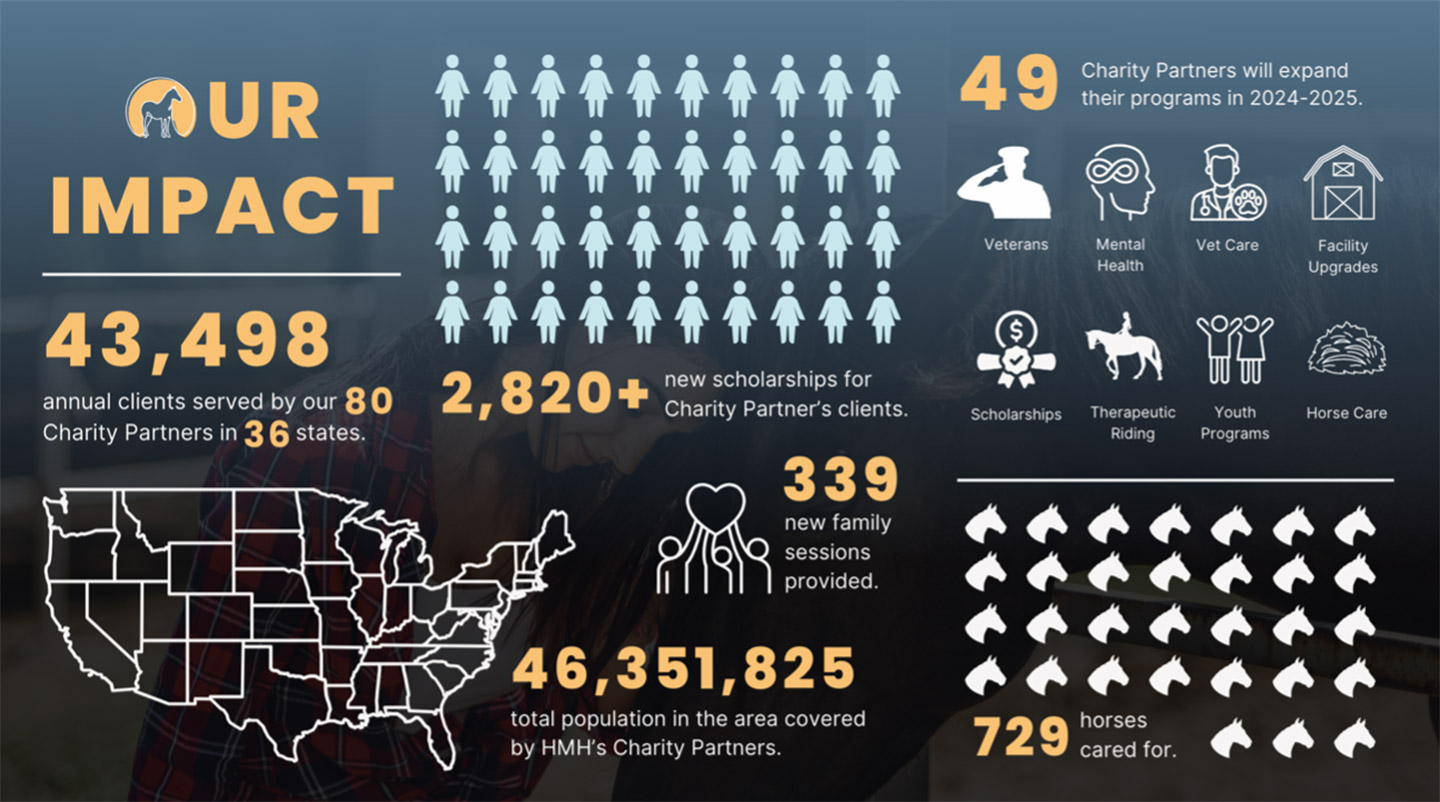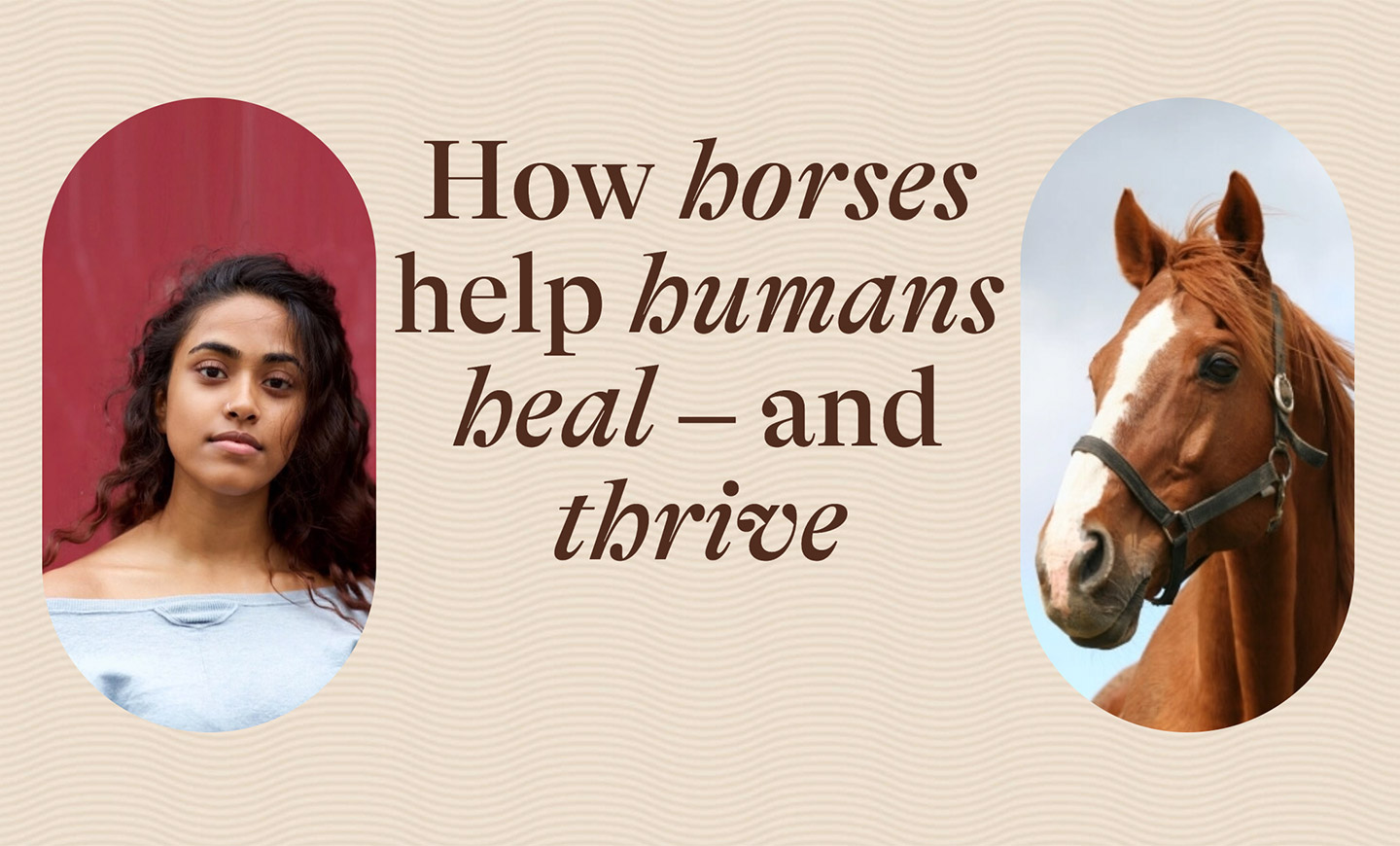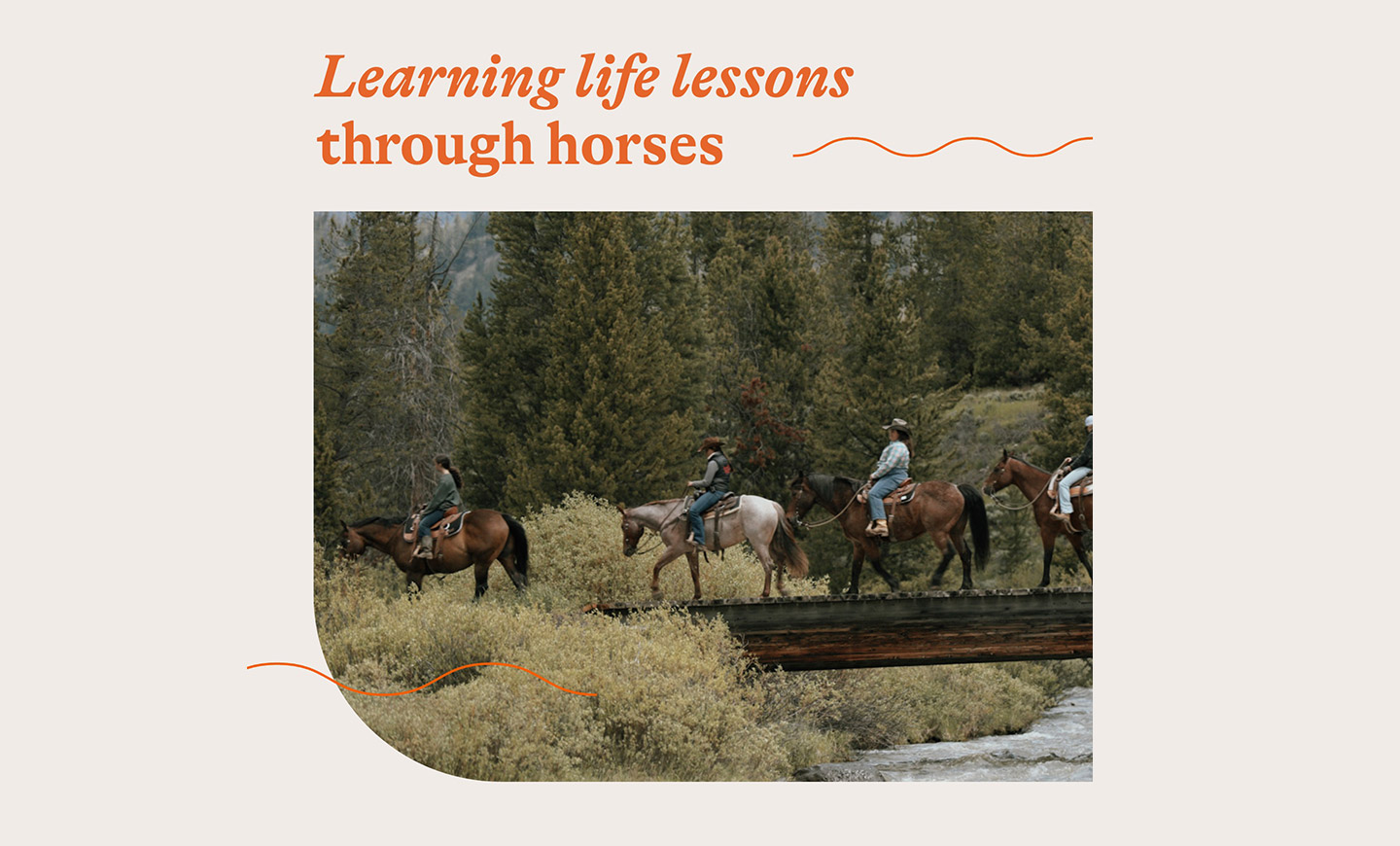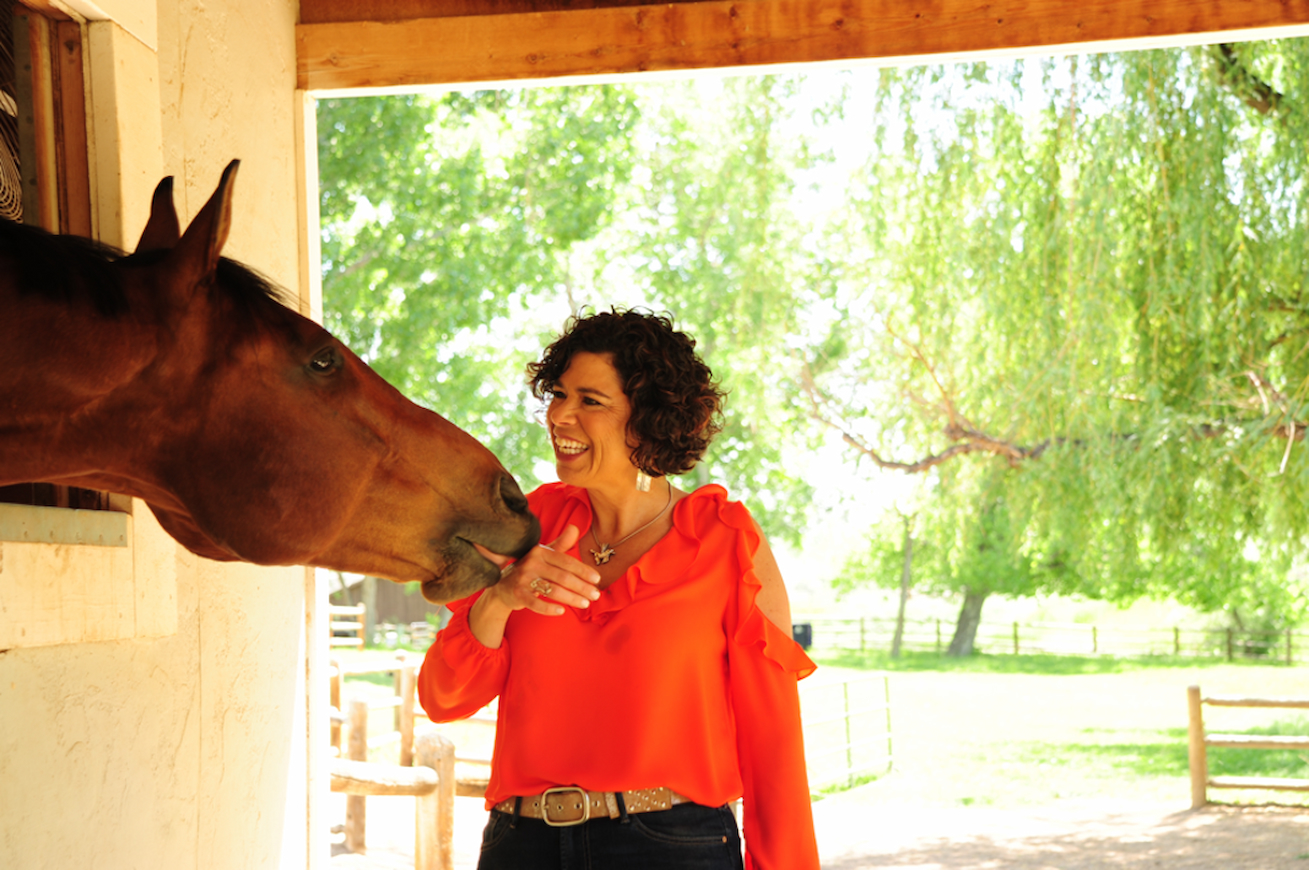Expanding the Hoofprint for Healing
By the Zoetis Equine Team
9/28/2024
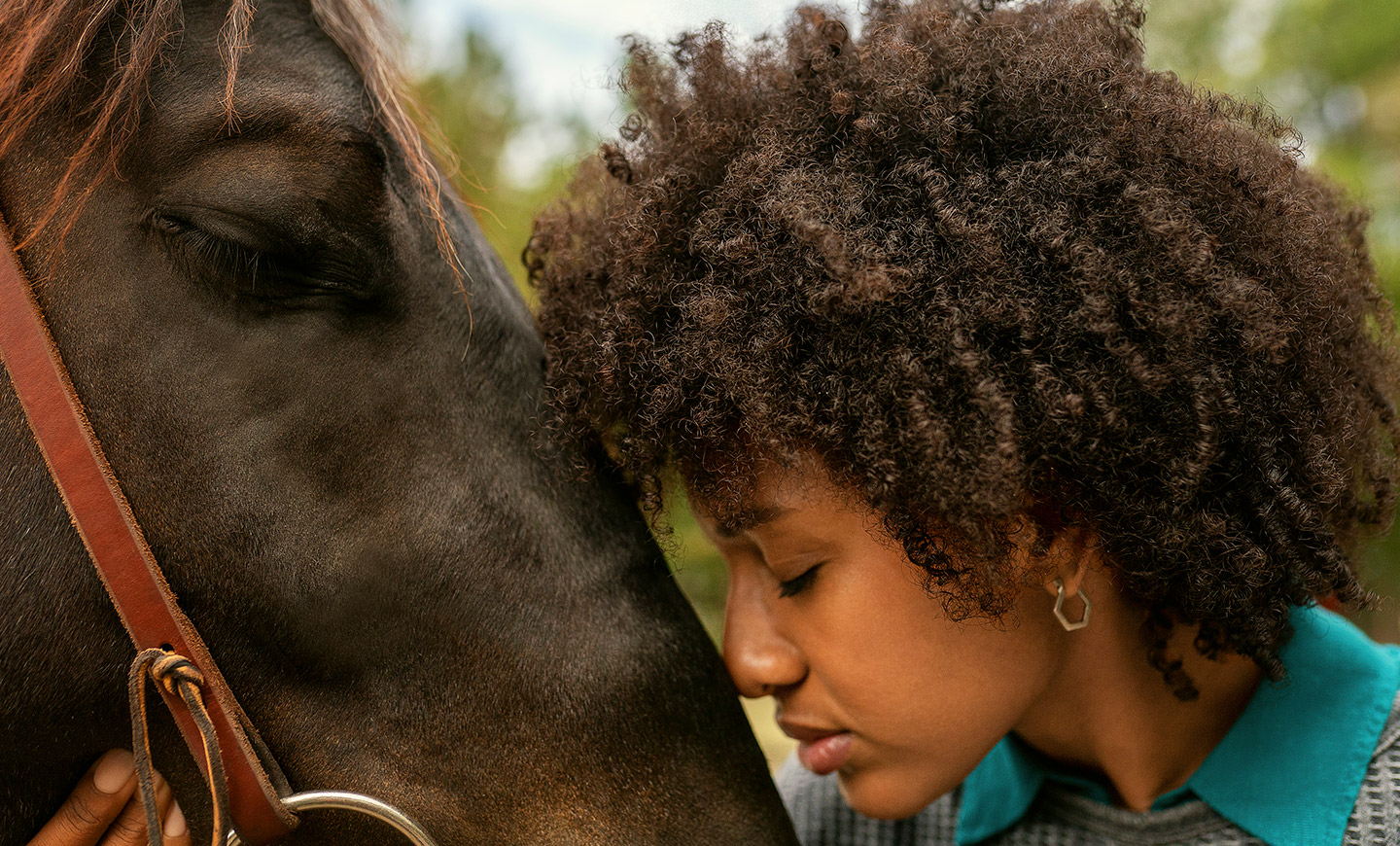


“I’ll never forget this one veteran who came through our program a while back,” shared Christianna Capra, Co-Founder and Equine Specialist at Spring Reigns of Life. Andrew, an Army Ranger who served in Iraq, had been dealing with the ramifications of his experiences in war and made his way to the Spring Reins of Life program after trying a range of other solutions like talk therapy and medication. Initially he wasn’t particularly interested in participating, and he spent much of his time sitting on the corral, watching the other program members interact with horses.
.jpg)
Throughout his first half hour not much happened, yet seemingly out of nowhere a thoroughbred named Syriana (Syri for short) who was known for acting out participants’ emotions, began to engage with Andrew. Syri would saunter up to his perch on the fence, trying to get him to interact. When he made eye contact, she would prance her feet and then jog off, looking back at him as she made a circle. Syri repeated this one-on-one game consistently until Andrew became curious about the horse with the red coat trying to get his attention. The next time Syri did this, he leapt down and began running alongside her and it became a horse-human race.
The two ran together for a time, staying in stride while the rest of us just watched. Afterward, Andrew’s demeanor and attitude noticeably changed.
“Syri knew he needed to run,” said Capra. “That horse helped him rediscover a part of himself he’d lost.”
He had been an avid long-distance runner in his youth, though he’d given it up since joining the military. After the program, Andrew returned to find his running mate and began to enter ultramarathon races, thus, the Spring Reigns of Life staff made t-shirts with the phrase, “I Run for Syri” to cheer him on.
The horse-human connection
Andrew's story is just one example of the powerful, transformative experiences many people have with equine-assisted services (EAS) programs. At Zoetis, we know the incredible power of the horse-human connection and the profound impact it can have on both horses and humans alike. It’s that connection that powers our passion for improving the health of horses and inspires our rallying cry, Long Live the Horse. What’s more, many of us have experienced this connection first-hand-as horse owners, veterinarians and team members who have been impacted by EAS programs.
Horses for Mental Health
We have all met life’s ups and downs, and at times didn’t feel like we had the resources or tools to move forward—whether that be in facing a difficult diagnosis, the loss of a loved one or a sense of heightened anxiety associated with burnout. Mental health programs that incorporate horses are growing what we like to call ‘the hoofprint' for healing: Every person's journey is so unique, and different therapeutic modalities meet people exactly where they need the support. EAS happens to be a therapeutic blueprint that resonates beautifully with many participants. We’re thrilled to see awareness of it expanding so that more and more people can seek this type of program as a viable option.
It’s because of this belief and our understanding of the healing power of horses that we support Horses for Mental Health’s Seen Through Horses campaign, which takes place annually in May during Mental Health Awareness Month. Seen Through Horses is a peer-to-peer awareness campaign in which people, nonprofits, EAS specialists, celebrities, influencers and businesses help increase awareness and public engagement while raising critical funds to improve access to programs incorporating horses into mental health and personal growth services.
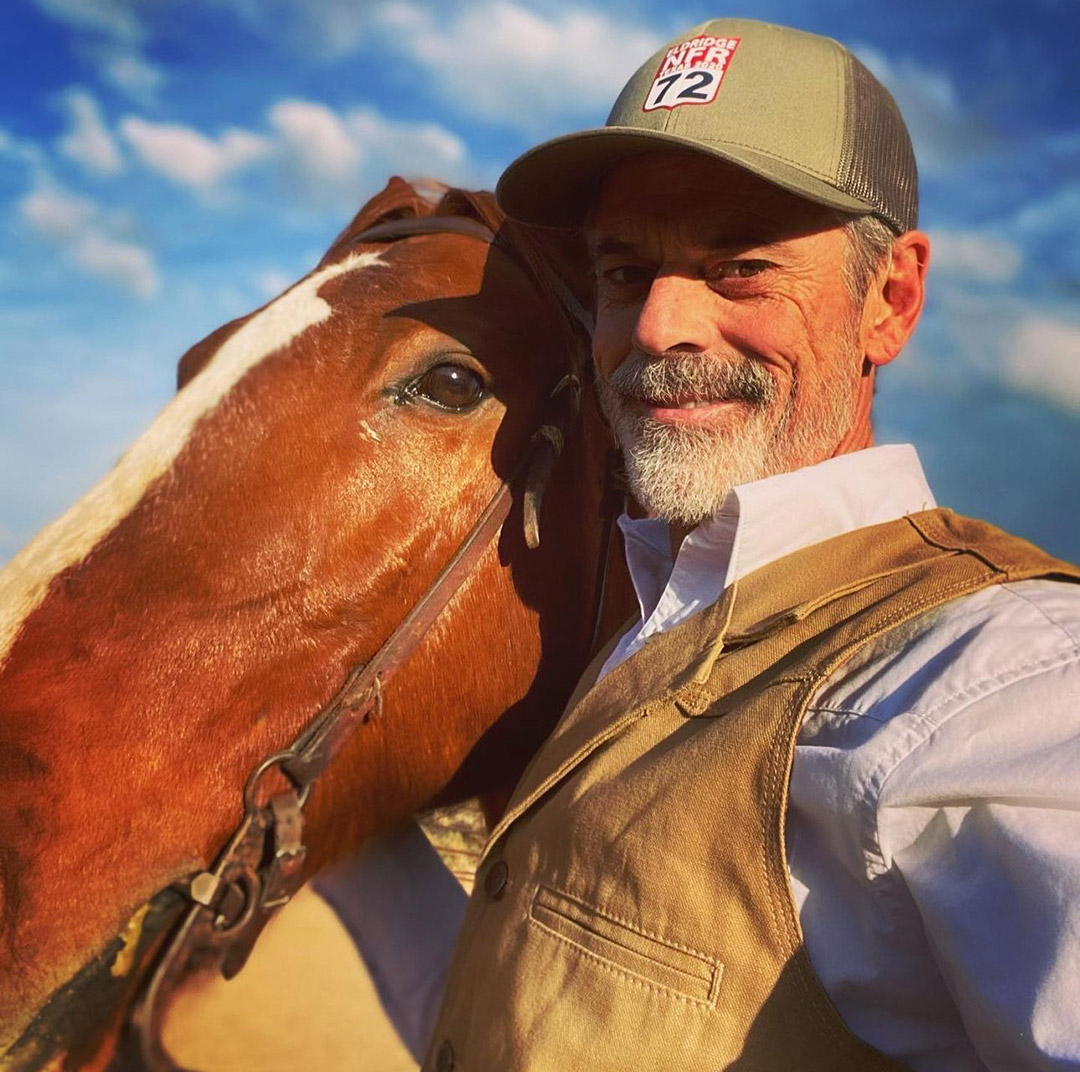
EAS programs come in a variety of shapes and sizes, many tailored to assisting people with specific needs. For example, some help patients improve motor skills while others focus on emotional wellness and self-actualization. Whatever the program, they all have one thing in common: the power of the horse. By allowing people to interact with and achieve tasks with horses, whether grooming, riding or conquering an obstacle course, these programs instill a unique sense of accomplishment and increased self-esteem.
C. Thomas (Tommy) Howell, actor, lifelong horseman, cowboy, rancher and a Horses for Mental Health ambassador shared a similar experience, remembering how growing up on a ranch with horses made his day-to-day life easier as he started his career. “It made Hollywood meetings so simple. When you’re pushing 1,200 cows along the side of a hill on your horse over a weekend, going into a meeting and saying a few lines for a director seemed so simple. There wasn’t pressure for me after growing up taking care of horses and other animals,” said Howell who was 15 when he landed the lead role of the character, Ponyboy Curtis, in the Francis Ford Coppola film “The Outsiders.”
“Horses are extremely therapeutic and grounding, they are amazing teachers. They reflect our souls and who we are back to ourselves,” says Howell. “They are a reminder of who we really are and it’s one of the most important relationships that I’ve been able to experience on this planet.”
Recognizing the power of horses to heal, create bonds and inspire confidence, Howell has supported EAS programs over the years, offering his horses in programs for children. Howell recalled, “A couple of times I brought my own horses to events for children experiencing physical and emotional issues. Pretty miraculous thing to see. Being able to touch or ride a horse for the first time changes their expression completely. There’s a sense of fearlessness that’s overwhelmingly felt by all when the child is experiencing the feeling of freedom that comes with riding that horse by themselves. Often, they are experiencing that sense of freedom for the very first time.”
Patricia Jackson, founder of We Ride Too, a nonprofit based in Oakland, California, also recognizes the power of horses to help improve the lives of children and young adults. We Ride Too is committed to serving a wide range of young people in Oakland who face various challenges and traumas with limited access to resources.
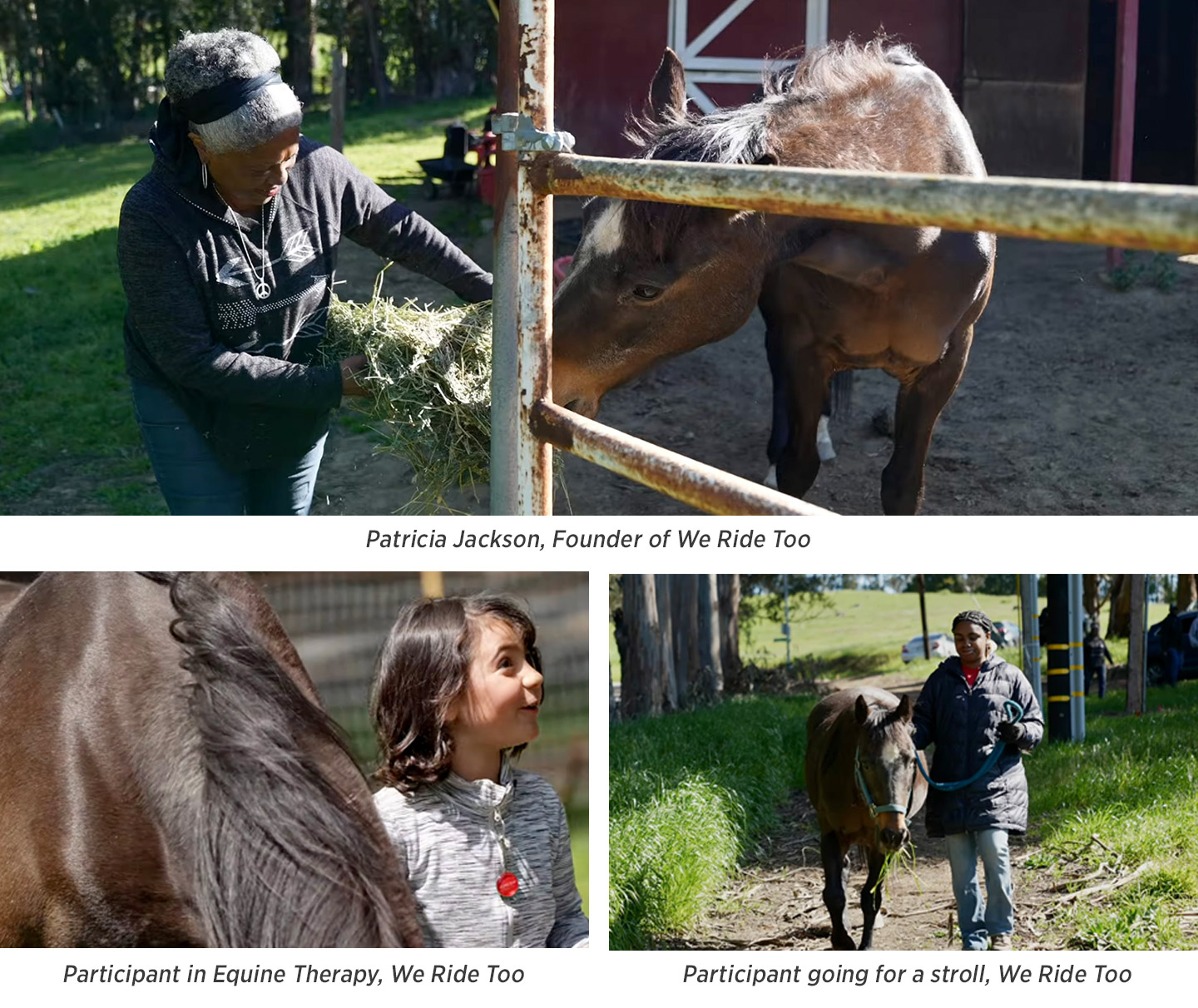
In the video below, Jackson shares the powerful story behind the founding of her organization and what led her to the mission of building a place where kids, especially coming from diverse backgrounds, can go where they won’t be told “No, you can’t do that.” We Ride Too is a great example of an organization supported by the Seen Through Horses campaign.
We Ride Too, The Power of Horses Breaking Barriers
Over the past three years, Horses for Mental Health and Zoetis have raised over $590,000 for nonprofit Charity Partners through the Seen Through Horses campaign. These critical funds have helped more than 185 organizations in 45 states, supporting programs just like Horses for Healing, Spring Reins of Life, which we learned about through Andrew’s story; and We Ride Too. And awareness is growing. Between 2022 and 2024, Seen Through Horses saw a 600% increase in donations.
Image provided by Horses for Mental Health. Click on the image to download a full version.
Zoetis has been the campaign’s title sponsor for the past three years, and our team is incredibly proud of the life-changing experiences Seen Through Horses supports and all the work that’s been put into building and raising awareness for its partner organizations.
Seeing veterinarians
We mentioned that we believe in the power of the horse because we’ve experienced it first-hand. However, that isn’t the only aspect of this story that hits close to home.
In the past few years, the mental health and well-being of veterinarians has become an increasingly important topic. Not only are we experiencing a shortage of equine vets, but the American Association of Equine Practitioners shares data that only around 1.3% of new veterinary graduates are choosing to enter the equine field each year. The mental health crisis we’re experiencing as a nation is particularly acute in the veterinary community.
Driving long hours to see patients, being on-call for emergencies, and the physically and emotionally demanding nature of veterinary work can be tough for even the most experienced practitioners, with exhaustion, mental strain and compassion fatigue leading many to burn out or worse. In fact, data from the Centers for Disease Control and Prevention report that veterinarians are between two and four times more likely to die by suicide than the general population. Contributing to the lack of equine veterinarians, nearly 50% of equine graduates transition to small animal practice or leave the profession entirely within five years of graduating.
Dr. Jacquelin Boggs, DVM, MS, DACVIM, Senior Equine Technical Services Veterinarian at Zoetis, shared her experience with burnout and compassion fatigue after working as an ambulatory veterinarian and a Board-certified Internal Medicine Specialist for many years while navigating an illness close to home. After hitting a “burnout brick wall” following her beloved dog Deuce’s long battle with osteosarcoma, Dr. Boggs went into recovery mode and came out with a renewed sense of passion for coaching and self-care.
In her blog, Dr. Boggs shared, “When we, as veterinarians, spend most of our time running from one commitment to the next, it’s challenging to find space to sit quietly and reconnect with ourselves. I’d love to offer ‘permission’ from one veterinarian to another to make this time a priority. It’s essential to your well-being and thus how you show up for your clients, family, friends (pets included) and the horses who give us so much in return. Consider carving out personal time to reduce the noise and demands of the outer world to focus on what you really need and want in life. Time to ‘be’ helps set the stage for the creativity needed to identify your values, your true purpose, and your goals to create an abundant vocation and life.”
At Zoetis, we know the value equine veterinarians bring to their patients, horse owners and their communities, and they deserve every bit of support we can give them. Even heroes can’t do it all on their own. Read more about how to support equine veterinarians here: Supporting Equine Veterinarians: A Path to Career-Life Balance.
Supporting mental health services incorporating horses
We’re in the midst of a crisis that’s impacting the mental health and well-being of our friends, neighbors, trusted veterinarians and family members. In partnership with Horses for Mental Health, we’re grateful to be a part of a galvanizing program like the Seen Through Horses campaign to help amplify the power of horse-human connections as a light in the darkness. We’re honored to work with equine vets, researchers, nonprofits and more to raise awareness of these programs and the healing power they provide. We’ll always be by your side and are committed to fighting with our partner organizations for a better tomorrow for horses and humans alike.
Please consider joining us by visiting horsesformentalhealth.org. As always, Long Live the Horse.
Related reading
All trademarks are the property of Zoetis Services LLC or a related company or a licensor unless otherwise noted.
© 2024 Zoetis Services LLC. All rights reserved. GEQ-01260
 Visit veterinary professionals site
Visit veterinary professionals site
